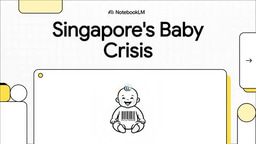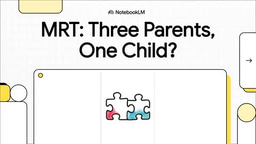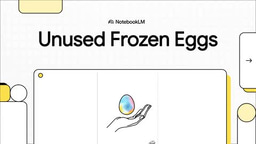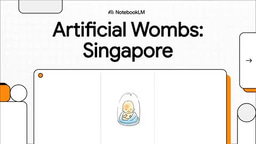Counseling for Elective Egg Freezing in Singapore
Elective egg freezing has been permitted in Singapore from 2023, but there is a lack of clear directives for pre-procedure counselling. Hence, there is a risk of misinformation and lack of informed choice.
Published in Social Sciences, Pharmacy & Pharmacology, and Law, Politics & International Studies
Please refer to the following journal article:
Introduction
The article, "Systematic protocol and methodology needed for pre-procedure counselling of elective egg freezing patients in Singapore," addresses the critical need for comprehensive and standardized counselling for women considering elective egg freezing in Singapore. It highlights that while elective egg freezing (also known as planned oocyte cryopreservation or social egg freezing) has been permitted in Singapore from 2023, there is a lack of clear directives for pre-procedure counselling. This new medical procedure is available to married and single women aged 21 to 37, but only married women are allowed to use their frozen eggs for in vitro fertilization (IVF) treatment within Singapore. Single motherhood by choice is officially discouraged by the government, although there are no local laws preventing single women from exporting their frozen eggs for IVF with donor sperm in foreign clinics.
The Problem: Misinformation and Lack of Informed Choice. Compulsory pre-procedure counselling is mandated to ensure women understand the medical risks, financial costs, and success rates before committing to the procedure. However, the authors argue that widespread media and internet influences can mislead prospective patients, causing them to believe that egg freezing guarantees future motherhood. This contradicts statements from professional bodies like the American Society for Reproductive Medicine (ASRM) and the British Fertility Society (BFS). Furthermore, scientific data published in reputable journals, often touted by fertility clinics, can be misleading. These high success rates are typically based on frozen eggs from young, fertile, and healthy donors (20-25 years old), not the older, often single, and healthy or medically varied typical elective egg freezer. Such "good-looking" data do not reflect the reality for many women considering the procedure. To counter this, comprehensive counselling is essential to provide evidence-based information and prevent potential decision regret.
A Systematic Protocol for Counselling: The authors, drawing on diverse expertise from the University of Melbourne, Malaysia, and Singapore, have developed a systematic protocol and methodology for pre-procedure counselling. This framework incorporates flowcharts and decision trees specifically tailored to Singapore's unique sociocultural values and legal restrictions, addressing the "why, what, how, where, and when" of the egg freezing procedure to facilitate informed decision-making. The protocol does not dictate delivery style but highlights key issues for discussion.
Key Discussion Points in Counselling:
1. Why? – Motivations and Doubts
◦ Motivations: Surveys in the US and Israel show that 85% of educated professional women freeze eggs due to the lack of a suitable partner for childbearing at the time, often citing reasons like inability to find a compatible partner, divorce, or new/uncertain relationships. Other factors include career prioritization (a small minority), recent fertility/health diagnoses, critical life events, and increasing awareness of age-related fertility decline.
◦ Psychosocial Implications: Women must consider these, especially regarding unused eggs. In Singapore, only women in traditional heterosexual marriages can use frozen eggs for IVF. Single women face significant social stigma and discriminatory policies if they choose single motherhood via overseas IVF with donor sperm, including lack of government pro-family incentives and challenges with inheritance rights. Transporting eggs overseas also carries risks of damage and incompatible lab protocols.
◦ Doubts: Counsellors should encourage women to address genuine desires for children versus social/family pressure (a significant issue in conservative Asian societies where unmarried/childless women face stigma). It's crucial to convey that egg freezing is not a guaranteed path to motherhood, with a risk of remaining childless. Most women who freeze their eggs do not eventually use them, often conceiving naturally later.
2. What? – Risks, Side-effects, Costs, and Success Rates
◦ Medical Risks: These include Ovarian Hyperstimulation Syndrome (OHSS), characterized by severe bloating, shortness of breath, and abdominal pain, which can lead to ovarian torsion and, rarely, be life-threatening. Egg retrieval is an invasive procedure with a small risk of bleeding, organ perforation, and infection. Common side effects include nausea, vomiting from hormones, and pain from injections, blood tests, and ultrasounds.
◦ Non-Medical Risks: These encompass cryopreservation storage failure due to liquid nitrogen tank issues, monitoring system failures, natural disasters, or staff negligence. High-profile cases of irreversible damage have occurred in the US, leading to lawsuits. Singapore currently has no mandated compensation or insurance for cryo-storage failure. Clinic bankruptcy is another remote possibility.
◦ Chances of Success: Counselling must provide age-specific live birth rates. For example, a woman under 35 needs 30 eggs for a 95% chance of conceiving, potentially requiring around three egg freezing cycles (averaging 13 eggs per cycle). Medical conditions like PCOS, low ovarian reserves, or irregular cycles can reduce success rates. It is vital to inform women that while eggs don't age, their womb and body will, increasing risks of pregnancy complications and medical conditions (e.g., fibroids, gestational diabetes).
◦ Costs: There are three components:
▪ Procedure Cost: SGD$7,000-9,000 in public hospitals; SGD$10,000-15,000 in private clinics per cycle.
▪ Annual Storage Costs: SGD$500 in public hospitals; SGD$900 in private clinics.
▪ Future IVF Costs: These will be influenced by inflation. While government subsidies for IVF exist for citizens/PRs, and Medisave can be used for IVF, there are currently no subsidies or Medisave use for the elective egg freezing procedure itself.
3. How? – Procedure Mechanics and Financing
◦ Procedure Steps: This involves ancillary procedures like pre-procedure screening (ultrasound, FSH, AMH levels, womb health checks) and body preparation (lifestyle changes, weight control, diet, supplements, alternative therapies). Patients are advised to consult government-affiliated media for procedure details.
◦ Financing: Since there are no government subsidies or Medisave use for the egg freezing procedure itself, women must rely on personal savings, asset sales, loans, or family assistance.
4. Where? – Clinic Choice
◦ Eligibility and Options: Singapore allows women aged 21-37 to undergo the procedure, with appeals for those marginally older. Patients can choose between cheaper public hospitals (with longer waiting times) or more expensive private clinics (with shorter waiting times).
◦ Track Record: Patients should prioritize clinics based on their track record of live births with frozen eggs and experience with specific medical conditions. Given that egg freezing is new in Singapore, most local clinics will have limited or no track record, making well-established foreign clinics an option for more affluent individuals seeking experienced staff.
5. When? – Timing Considerations
◦ Time Commitment: The procedure is time-consuming, involving numerous medical appointments over 2-3 weeks (consultations, blood tests, ultrasounds, day surgery for egg retrieval).
◦ Planning: Women with busy schedules need to carefully plan the timing to allow for leave or time-off. Discussing timing with workplace managers is encouraged if comfortable.
◦ Financial and Preparatory Timing: The cost may influence timing (e.g., waiting for bonuses), and some women may wish to undertake several months of pre-procedure fertility optimization (diet, supplements).
Conclusions and Safeguards
The authors conclude that systematic and comprehensive pre-procedure counselling is essential to help women make informed decisions, especially given the potentially misleading information from commercial sources. They suggest that the Singapore Ministry of Health could prepare a printed pamphlet or booklet and an online version with adequate and timely information. Another safeguard proposed is a checklist within the patient consent form to ensure acknowledgment of vital information, such as the non-guaranteed path to motherhood and the fact that many women do not utilize their frozen eggs. This approach aims to protect prospective patients and facilitate informed choice within Singapore's unique social and legal context.
Follow the Topic
Bioethics
Humanities and Social Sciences > Society > Science and Technology Studies > Societal Outreach of Biology > Bioethics
Assisted Reproductive Techniques
Life Sciences > Health Sciences > Clinical Medicine > Therapeutics > Assisted Reproductive Techniques
Public Policy
Humanities and Social Sciences > Politics and International Studies > Public Policy






Please sign in or register for FREE
If you are a registered user on Research Communities by Springer Nature, please sign in